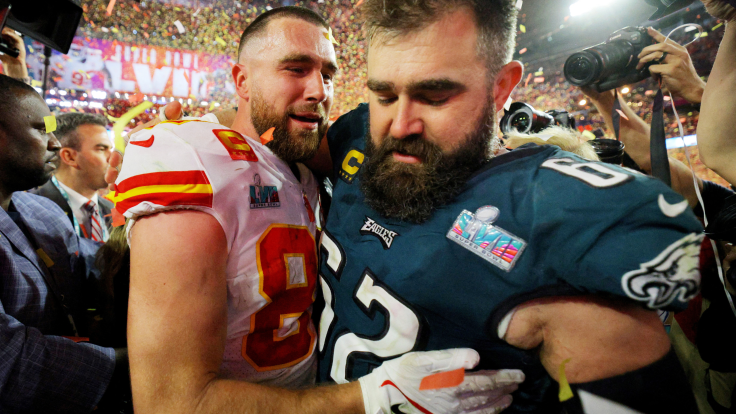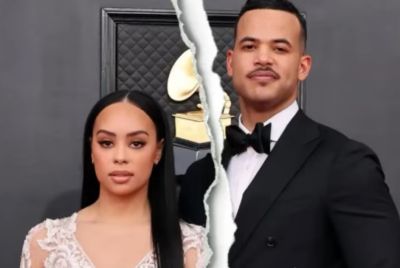'It is Not Real!' Jason Kelce Slams Viral Hoax After Being Wrongly Quoted On Bad Bunny
Kelce's post on X corrects the record amid fierce online debate over Bad Bunny's Apple Music Super Bowl LX performance

Former NFL star Jason Kelce publicly denounced a wave of fabricated quotes attributed to him about Bad Bunny's Super Bowl appearance, insisting the comments never came from his verified channels.
Kelce, the retired NFL centre turned broadcaster and podcast co-host, took to X on 14 October 2025 to correct the record after a viral post circulated a pithy quote purporting to show him defending Bad Bunny and denouncing critics.
Kelce said he does not intend to amplify the accounts responsible, thanked X's community notes for flagging some posts, and urged followers to accept only statements that come directly from his platforms. The clarification landed amid an intense online debate over Bad Bunny's announced headline performance at Super Bowl LX on 8 February 2026.
Kelce's Direct Rebuttal: The Primary Source
In a short but emphatic post on X, Kelce wrote: 'I normally don't comment on things like this, but I feel I need to address that there are a number of accounts posting fake quotes and attributing them to me on this platform right now.'
He added: 'I appreciate @X putting community notes on several ... But please know, unless you hear something directly from me via one of my platforms, it is not real.' That post is the definitive source for his denial and is central to any accurate account of the episode.
The purported quote making the rounds, often rendered as, 'If Bad Bunny is a bad fit for the Super Bowl, then maybe the people making these comments are a bad fit for America's future,' could not be traced to any recording, transcript, or broadcast featuring Kelce.
I normally don’t comment on things like this, but I feel I need to address that there are a number of accounts posting fake quotes and attributing them to me on this platform right now. I appreciate @X putting community notes on several and I will not address the other accounts…
— Jason Kelce (@JasonKelce) October 14, 2025
Searches of the video captions and transcripts for his public outlets, including the New Heights podcast, reveal no match for the phrasing attributed to him. Independent fact-checks and caption searches of New Heights episodes found no evidence that Kelce had ever voiced such a line in an interview or show.
The Wider Context: Why the False Quote Spread
The misinformation erupted in the immediate aftermath of the NFL, Apple Music, and Roc Nation announcement that Bad Bunny will headline the Apple Music Super Bowl LX Halftime Show on 8 February 2026 at Levi's Stadium.
The selection was one of this year's most polarising cultural moments. Supporters hailed a landmark for Latino representation on a global stage, while critics, including high-profile conservative figures, expressed outrage. That polarised atmosphere created fertile ground for social posts weaponising famous names to validate one side or the other.
Several posts that amplified the fabricated Kelce quote were subsequently labelled by X's community notes system as unverified or false; Kelce specifically praised those notes in his message.
The use of community annotations demonstrates one platform-level response to rapid misinformation, but it also underscores how quickly fabricated content can travel outside mainstream editorial control. Social media users on both the right and the left shared the post, illustrating how false claims can be weaponised across political lines.

Reputation, Responsibility and Echo Chambers
For Kelce, the immediate cost was reputational noise: a private man thrust into a culture-war exchange he did not start. For Bad Bunny, the controversy deepened an already charged cultural moment, one in which choices about language, identity, and politics are amplified beyond the artists themselves.
The incident highlights two recurring patterns in modern public life: first, that high-profile cultural events attract not only legitimate debate but also opportunistic falsification; and second, that public figures must vigilantly correct misattributions to limit reputational harm.
As the Super Bowl date approaches, cultural friction over the halftime show is likely to persist. Kelce's intervention is a reminder that much of the debate is now mediated not by newspapers or broadcasts alone, but by social feeds where attribution can be fabricated in minutes, and where the only reliable source is often the original post from the person in question.
'Unless you hear something directly from me via one of my platforms, it is not real', Kelce wrote, a short, necessary admonition for an age of rapid fabrication.
© Copyright IBTimes 2025. All rights reserved.





















